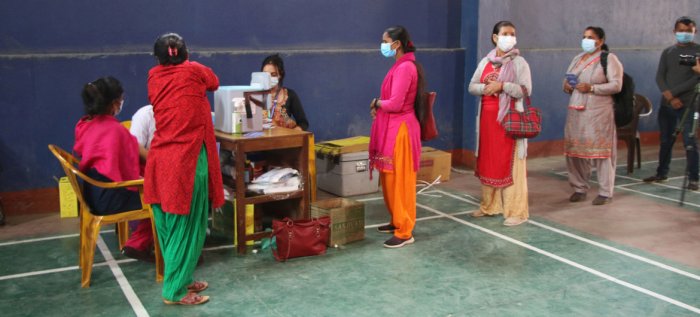By Haruna Gimba
The Independent Panel for Pandemic Preparedness and Response has called on the global community to end the COVID-19 pandemic and adopt a series of bold and essential reforms to prevent the next crisis.
The Independent Panel was appointed by the World Health Organization (WHO) Director-General, Tedros Adhanom Ghebreyesus, in response to a World Health Assembly resolution calling for an independent, impartial, and comprehensive review of experiences gained and lessons to be learned from the current pandemic.
The review was also asked to provide recommendations to improve capacity for global pandemic prevention, preparedness, and response.
In a statement, the prestigious ‘Independent Panel for Pandemic Preparedness and Response’ said the WHO should be given greater authority to respond more quickly to future threats.
“Our message is simple and clear: the current system failed to protect us from the COVID-19 pandemic,” said former Liberian President Ellen Johnson Sirleaf, co-chair of the Independent Panel.
“If we do not act to change it now, it will not protect us from the next pandemic threat, which could happen at any time.”
The Panel, co-chaired by the Rt Hon. Helen Clark, former Prime Minister of New Zealand, and Her Excellency Ellen Johnson Sirleaf, former President of Liberia, has spent the past eight months rigorously reviewing the evidence on how a disease outbreak became a pandemic, and on global and national responses.
“The tools are available to put an end to the severe illnesses, deaths, and socio-economic damage caused by COVID-19,”said panel co-chair Helen Clark, former Prime Minister of New Zealand, insisting that leaders “have no choice but to act” to stop such a catastrophe happening again.
“The current system at both national and international levels – was not adequate to protect people from COVID-19. The time it took from the reporting of a cluster of cases of pneumonia of unknown origin in mid-late December 2019 to a Public Health Emergency of International Concern being declared, was too long,” the panel said in a statement on its report, COVID-19: Make it the Last Pandemic.
The panel – whose report contains “the authoritative chronology of what happened” – also insisted that February 2020 was “a lost month.”
This was because “many more countries” could have done more to contain the spread of the new coronavirus after the WHO declared a public health emergency of international concern on 30 January, after the initial outbreak in Wuhan, China.
“The shelves of storage rooms in the UN and national capitals are full of reports and reviews of previous health crises. Had their warnings been heeded, we would have avoided the catastrophe we are in today. This time must be different,” said Johnson Sirleaf.
Quicker action “would have helped to prevent the global health, social, and economic catastrophe that continues its grip,” the panel noted, adding that “the system as it stands now is clearly unfit to prevent another novel and highly infectious pathogen, which could emerge at any time, from developing into a pandemic.”
Among its recommendations – and after highlighting how the coronavirus crisis continues to devastate communities – the panel urged Heads of State to take the lead in supporting proven public health measures to curb the pandemic and implement reforms “to prevent a future outbreak” from spreading globally.
The panel also advised high-income countries with adequate vaccine supply to commit to provide “at least one billion” doses to the 92 low and middle-income countries in the UN-led equitable vaccine scheme, COVAX, by September 2021.
Major vaccine-producing countries and manufacturers should agree to share intellectual property rights on their jabs, it said, guided by the WHO and the World Trade Organization (WTO).
“If actions on this don’t occur within three months, a waiver of intellectual property rights under the Agreement on Trade-Related Aspects of Intellectual Property Rights should come into force immediately,” the panel insisted.




